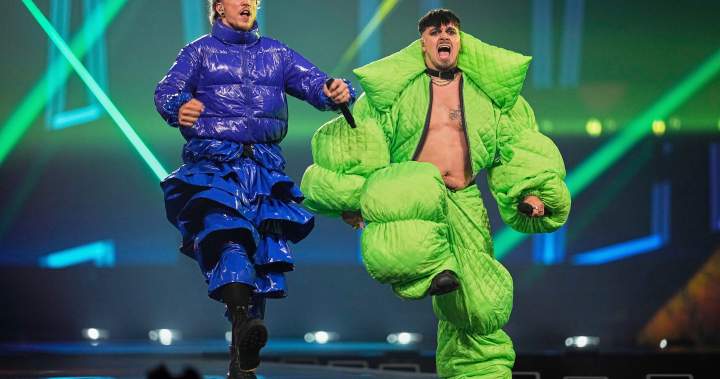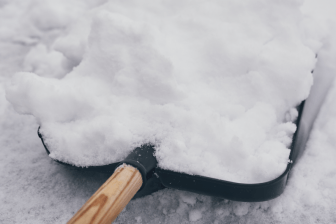It’s the international competition that brings Euphoria to its audience and let its participants Rise Like a Phoenix, and there’s the possibility the Eurovision Song Contest could soon include Canada in its ranks.
It wasn’t a big-ticket item, but the Liberal government’s 2025 budget included a line on the CBC that said it’s working with the public broadcaster to explore participation in the popular song contest.
Eurovision has been around since 1956 and is organized annually by the European Broadcasting Union. It features acts from multiple countries in Europe, but also a few from abroad, such as Australia.
The campy-style song contest has sometimes been called Europe’s version of the Super Bowl, with hundreds of millions of viewers globally.
“We want Canadian culture on a global stage,” Prime Minister Mark Carney said on Thursday. “Best culture in the world, best music in the world, I think Europe deserves to see it too.”
Carney is a fan of the popular song content.
Canadians have competed in the contest in the past, with Celine Dion winning it for Switzerland in 1988. That same year, Lara Fabian, who became a Canadian citizen in 1995, represented Luxembourg and came in fourth place.
La Zarra, who was born in Montreal, represented France in the 2023 contest and came in 16th with her performance of Evidemment.
Carney has been doing outreach to numerous countries in recent months as Canada looks to like-minded trading partners amid the trade war with the U.S.
Dean Vuletic, a historian of the Eurovision Song Contest, told Global News he was not surprised that Canadian budget included a line about the competition. He noted that joining the contest has been something discussed by Canada since Australia joined in 2015.
“Canada is a country that is close to Europe, culturally, politically, especially the countries of the European Union,” Vuletic said. “We’re talking about the EU member states which are the core of Eurovision and they’re the ones that Canada is looking to develop closer ties with considering the current situation in the world.

Get daily National news
Get the day’s top news, political, economic, and current affairs headlines, delivered to your inbox once a day.
“I think this is also a way for Canada to strengthen its connection with the European Union, even though Eurovision isn’t officially connected to the European Union … This is a way for Canada to demonstrate that it is closely tied with the European Union, that it shares the values of the European Union.”
Finance Minister Francois-Philippe Champagne told Global News Europe is open to the idea.
“This was something that was asked by the people who participate and I think it’s a platform for Canada to shine,” Champagne said Tuesday.
Joining Eurovision was previously considered by CBC/Radio-Canada in the past but was determined to be prohibitively expensive.
There have been plans to launch a televised singing contest in Canada that would send the winner to Eurovision, similar to how other contest countries choose their entry.
Lindsay Cox, co-chief content officer at Insight Productions in Toronto, told The Canadian Press that their original plans for an English-only program were scrapped in favour of a “bilingual-hosted show.”
Since the budget announcement, Cox said “ongoing conversations” have been taking place with the CBC, but did not provide more detail.
The big question, according to Eurovision expert Karen Fricker – if Canada gets in the contest – is there enough appetite to watch?
“It’s super fun to watch, but would there be interest in it?” wondered Fricker, an adjunct professor of dramatic arts at Brock University in Niagara.
Fricker told Global News the contest has become highly popular for various immigrant and diasporic communities, with some bringing their own nation’s broadcasts into their home and, in turn, watching the competition.
In addition, youth culture got into the contest during the COVID-19 pandemic, while some in the LGBTQ2S community have called it the “gay Olympics” — the winner of the 2024 contest, Nemo, identifies as non-binary while JJ, the 2025 winner, identifies as queer.
Fricker noted that Australia’s decision may lend to Canada’s as well.
“The decision was made that because Australia is very much a country of immigrants, as is Canada, in addition to have First Peoples, they have really, really built a following in Australia,” Fricker said. “So that when Australia then got the opportunity to compete, it made so much sense because there was so much excitement in the public. Here (in Canada,) that would need to be built, I feel.”
—with files from Global News’ Touria Izri and The Canadian Press
Read the full article here


